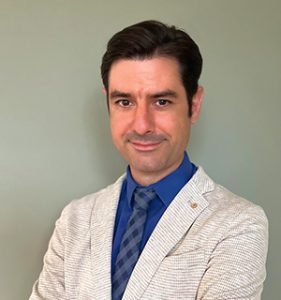ONLINE MEMBER EVENT PROGRAM
GWCN Themed Webinar: The Sanitation Challenge in Africa
GWCN is launching a series of webinars dedicated to global and regional environmental challenges. Speakers are exclusively picked from GWCN member organisations.
Discussion Panels for the current webinar:
1- Factors driving the sanitation problems in Africa, including socio-cultural barriers
2- Assessment of sanitation policies and national strategies
3- Classic and innovative solutions for tackling sanitation problems in Africa
For more details or suggestions, please contact Mr. Keyvan Osivandi keyvan.osivandi@gwcnweb.org
Opening Session
1:00 PM - 1:15 PM GMT
Webinar Moderator:
Speaker:
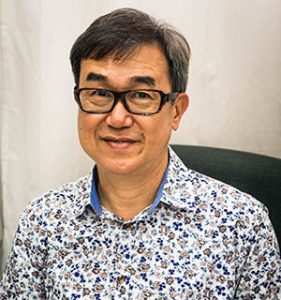
Topic: Introduction by World Toilet Organization (WTO)
Widely known as Mr. Toilet, Jack broke the global taboo of toilet and sanitation by bringing the agenda to global media center-stage with his unique mix of humor and serious facts since more than 20 years. After establishing the Restroom Association of Singapore (RAS) in 1998, Jack created the World Toilet Organization (WTO) in 2001 as a global network and service platform for toilet associations to promote sound sanitation and public health policies. He then created multiple World Toilet Summits and Forums across the globe and received multiple awards and recognitions for his achievements, including the inaugural Singapore Green Plan Award (2004), the Social Entrepreneur of the Year awarded by Schwab Foundation of Switzerland (2006), Ashoka Global Fellow (2007), ADB Water Champion by Asian Development Bank (2008), Hero of the Environment by Times Magazine (2008), Asian of The Year 2009 by Channel News Asia, Asian of the Year 2011 by Reader’s Digest Magazine, and more. In 2013, Jack Sim was appointed Adjunct Professor at the College of Management Academic Study, teaching Social Entrepreneurship.
Panel #1: Factors driving the sanitation problems in Africa, including socio-cultural barriers
1:15 PM - 2:10 PM GMT
Speakers:
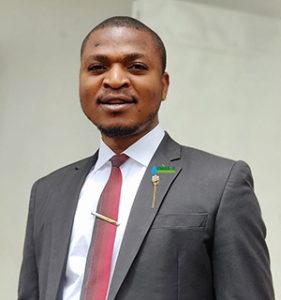
Topic: Sanitation Challenges in Cameroon
Sam Sukpa is the Founder/Executive Director of Clean Water and Sanitation Africa (CWASAF). A multi-talented Grassroots Servant Leader with over 7 years of international Community Engagement experience, Mr. Sukpa holds of a BSc Degree in Geography from the University of Buea (Cameroon) and a Mini-MBA in Entrepreneurship and Leadership from the University of Kesmond (USA). Mr. Sukpa is an Alumni from C-Life Servant Leadership Academy (2017) and African Grassroots Leadership Academy (2019). He is passionate about instilling in Youth and Community the sense of servant leadership, patriotism and environmental consciousness.
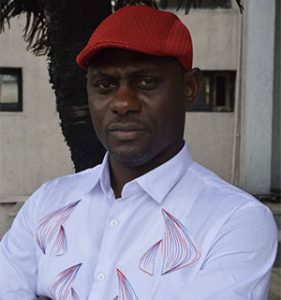
Topic: The Sanitation Challenge in Africa: The Niger Delta Experience
FYNEFACE DUMNAMENE FYNEFACE is the Executive Director of Youths and Environmental Advocacy Centre (YEAC-Nigeria). He works as a frontline environmental justice activist, human rights defender and climate action campaigner with over 11 years’ experience. Among other causes and impacts, Mr. Fyneface has been campaigning to reduce the impact of pollution from gas flaring, crude oil mining activities, industrial effluence, as well as household sanitary practices on society through advocacy and demanding more action on the implementation of extant laws to address pollution in Nigeria. Mr. Fyneface led the organization in 2019 to launch a “One Million Youth Volunteers Network of Human Rights Defenders and Promoters in the Niger Delta”, a platform that mobilizes and trains citizens as environmental advocates, campaigners, and evidence-based environmental monitors contributing to a pollution-free environment and future for the people and society.
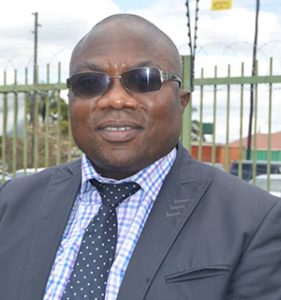
Topic: Challenges of Sanitation in Zambia
Mr. Mathias Zimba is Executive Director at Rising Fountains Development Program, which he founded in 2013. Mr. Zimba holds a master’s degree in Development Studies from the University of Lusaka (Zambia), a bachelor’s degree in Development Studies from the Information and Communications University of Zambia, a Diploma in Development Studies from the Institute of Business Management (Lusaka, Zambia), and has completed a Leadership Training with RBL in Glasgow (Scotland).
Panel #2: Assessment of sanitation policies and national strategies
2:10 PM - 3:05 PM GMT
Speakers:
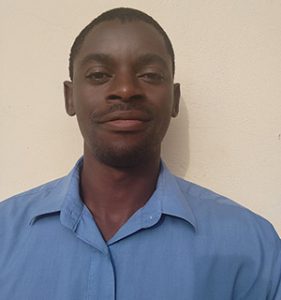
Topic: Key challenges to the progress on drinking water and sanitation in Africa – Implications for policy making
Lako Mbouendeu Stephane is the Head of the Climate and Water Resource Department of Water For Life Cameroon, a local NGO in Cameroon. He also acted as Disaster Risk Reduction Co-Coordinator at Water Youth Network (WYN). As an active Youth in civil society, he has contributed to several Water and Food policies and strategies at national (Cameroon), regional (Africa) and global levels. He also works as Advisor for Youth engagement, water engineering (drinking, sanitation, agriculture), water management (resources, policies) as well as entrepreneurship. He is dedicated to Youth and gender inclusion in policies and programs for sustainable water and food security.
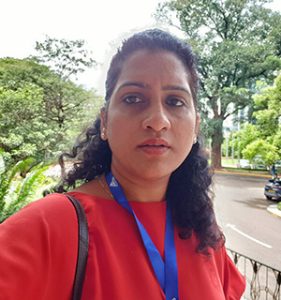
Topic: Achieving sustainable sanitation through policy advocacy and aligning stakeholders for creating a sanitation economy in Africa
Sarika Saluja has more than 15 years of experience in the development sector. Currently working at the World Toilet Organization in Singapore, she is passionately advocating for improved and safely managed sanitation facilities across the globe. Sarika co-created and led several World Toilet Summit events across the globe, established two World Toilet colleges in India, curated and led multi-sector collaborations with Corporate, International Development Agencies, NGOs, and Government, managed projects funded and sponsored by UNDP, ILO, RB, LIXIL, Nippon Foundation, and others, composed a capacity-building handbook titled “Women and Governance in South Asia” released by the President of Sri Lanka, and received several awards and recognition for her achievements, including the Country Ambassador (India and Singapore), Project Inspire, UN Women & Mastercard Singapore Initiative, and won the “American Express Fellowship”.
Sarika Saluja holds a master’s degree in Social Sciences (Gold Medalist) and completed a Harvard Business School Executive Education in Strategic Non-profit Management as well as a Social Impact Strategy education from the University of Pennsylvania.
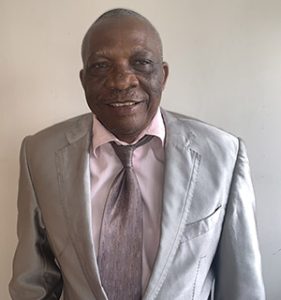
Topic: A reflection of WASH policies, strategies, gaps and progress in Liberia
Paul Jaiblai is Executive Director at Sustainable Urban and Rural Integrated Development Organization (SURIDO). He holds a Master of Engineering, Water and Environmental Management from the International Institute for Infrastructural, Hydraulic and Environmental Engineering (IHE) in Delft, The Netherlands, and a B.Sc. in Chemistry from Cuttington University College Suacoco, Bong County, Liberia.
Previous occupations of Mr Jaiblai include:
- WASH Specialist for UNICEF-Liberia,
- Solid Waste Management Specialist for EPA-Liberia,
- Public Health Engineer for Nyala North Darfur,
- Several positions at Oxfam Liberia, and others.
Panel #3: Classic and innovative solutions for tackling sanitation problems in Africa
3:05 PM - 4:00 PM GMT
Speakers:
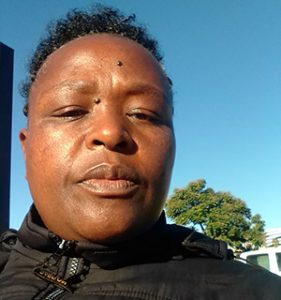
Topic: Dry sanitation: A long-term solution for environmental health challenges
Ms. Ntombifuthi Mavuso is founding director at Green Living Movement (GLM, Swaziland). She is an environmental activist and has 18 years of experience in waste management, permaculture, dry sanitation, and water sanitation. Working in rural and peri-urban areas in collaboration with the University of Eswatini, Mbabane Municipality, Salvation Army, Turku University of Applied Sciences (Finland), Global Dry Toilet Association (Tampere, Finland), Green Living Movement Zambia, and Green Living Movement Eswatini.
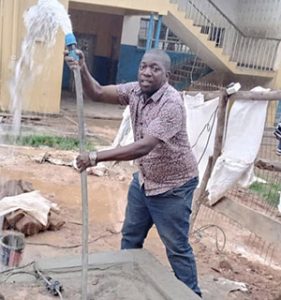
Topic: Access to clean water and improved sanitation through solar pumping systems in Uganda – lessons from EACO’s field operations
Shadrak Kyobe is Project Coordinator at Empower And Care Organization (EACO Uganda). He holds a Degree in Civil and Water Engineering and has been in the field for more than 12 years. Mr. Kyobe also works with a private company as a consultant to implement water and sanitation projects. His vision is “I want to see that everyone can access to safe and clean water in a good environment within a radius of 1 Kilometer.”
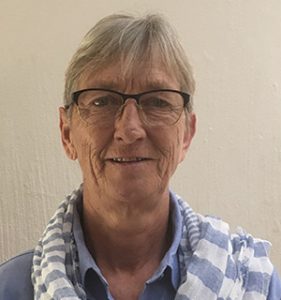
Topic: Innovation in waterless sanitation, waste management, employment, and food security environments – A circular economy concept for Africa
Ms. Henriëtte Vermaak is Director and Inventor at ECOlaTRINE. She holds a degree in Physical Education from the University of Stellenbosch and an Honors Degree in Psychology from the University of Johannesburg, but Henriëtte’s career took many turns since. An eye-opening experience was during her 17 year employment at the University of Johannesburg, where she worked with student-athletes with disabilities and became aware of the lack of wheelchair accessible sanitation at facilities, events and athlete’s homes in informal settlements. In 2015, at a World Rowing event in France, she first noticed Container Based Sanitation (CBS) and sawdust as a cover material, used as temporary sanitation facilities for rowers and spectators alike.
From 2016 to 2019 she adapted and built a small number of CBS units that were used at South African sporting events, biodiversity centers, by NGO’s and security companies. Following various international research studies and scientific guidelines on composting human waste with other biodegradable material, she did her own composting and made adaptations according to available material and climate. In 2018 the compost was successfully tested by an accredited laboratory – as fit for agriculture purposes. In 2019 she received a small grant from the Technology Innovation Agency (TIA) to redesign the CBS toilet to include a sawdust flushing mechanism she designed. Both the ECOlaTRINE toilet and composting solution became more modular in design, allowing for rapid, decentralized roll-out and operation. Except for the grant, the design and manufacturing of the ECOlaTRINE sanitation and waste management solutions is self-funded. The toilet design and patent are registered in South Africa.


